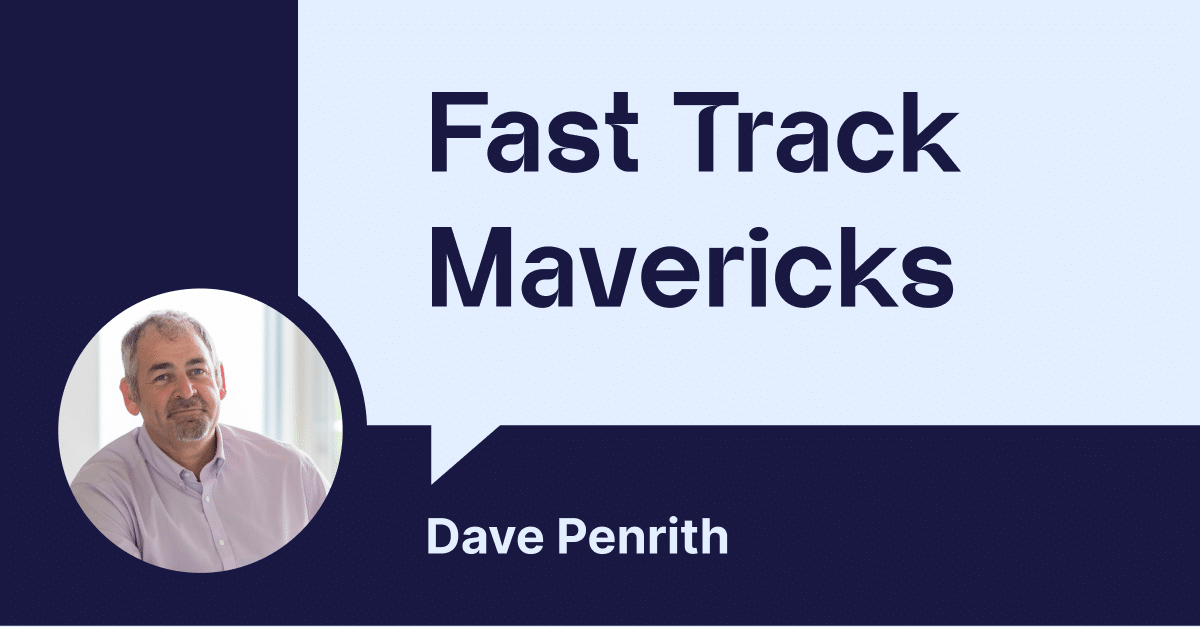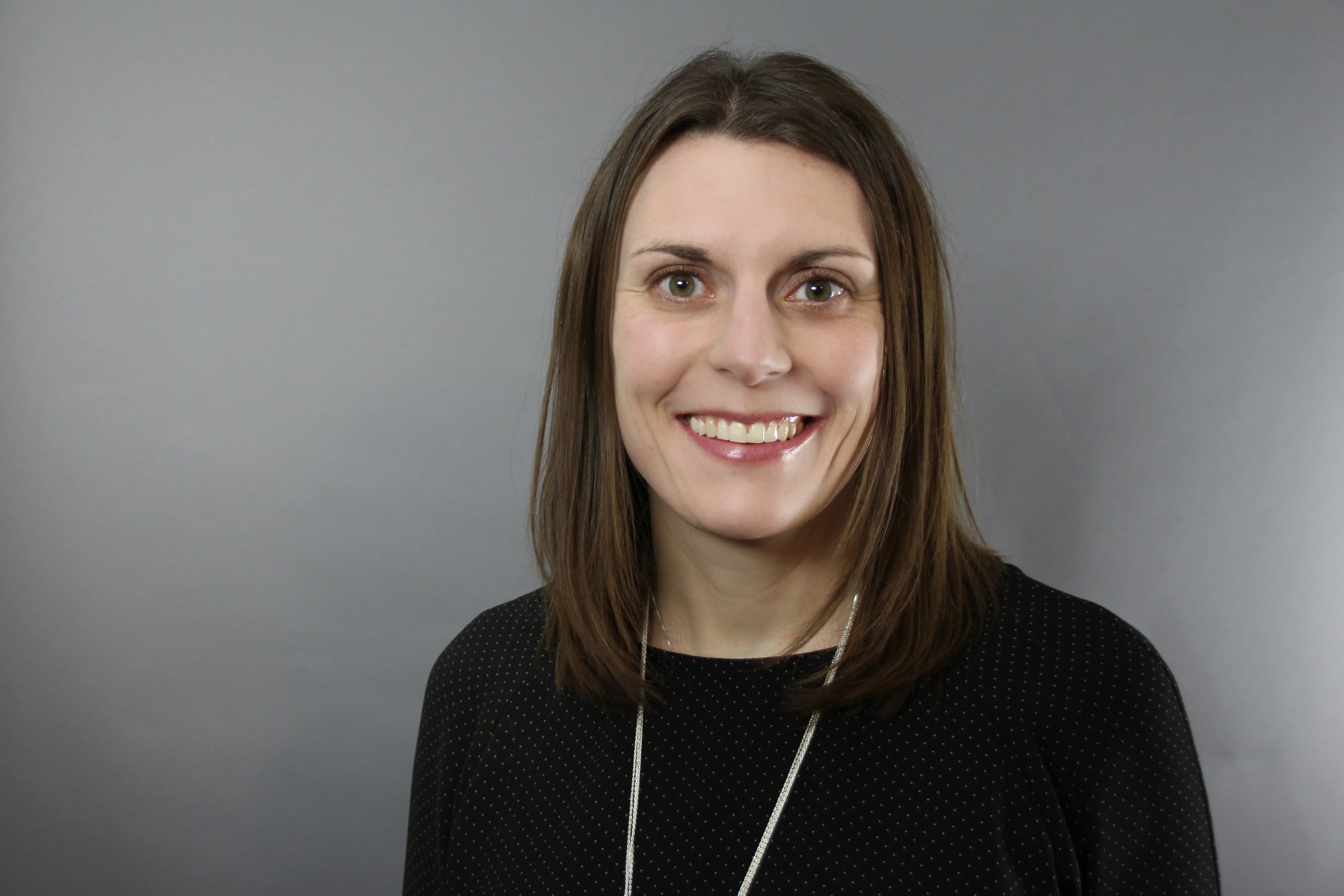
Why did they succeed when so many others failed? In this series, we profile manufacturing leaders who rapidly scaled digital innovations across their organization. While united by a people-first mentality, they each come backed by their own personal experiences and style. For this edition, we talked to retired Chief Engineer at Unilever, Dave Penrith. “Here’s my big lesson: you need to pay twice as much attention to the people’s journey than the technical journey.”
You can safely call Dave Penrith a maverick – one unafraid to reinvent the wheel. You can also call him extremely loyal. “I started at the lowest of the low as a 16-year-old apprentice at Unilever,” he says. And by the time he semi-retired almost 36 years later in 2021, he was the Chief Engineer who had overseen countless technology roll-outs.
These efforts included creating a full closed-loop digital twin in six weeks. While this achievement made him a shining star for Microsoft Azure, he was slow to tell his bosses about these plans. “I don’t always play the permission game,” understates Dave with a smile. I believe that energy and innovation can come more from unstructured free thinking than from control and permission.”
“I can tell you about one choke moment: it was when some junior people presented to the board of Microsoft led by the CEO Satya Nadella.”
Packing The Ultimate Journey Survival Kit
“At the time, I’d describe my job as having the responsibility to take over 7,000 souls spread across 300 locations on a journey that they’ve never been on before.”
As to what to pack on such a voyage, “I think the only survival kit you ever get in life is your own personal resilience and energy. As that famous man Mr. Drucker once said: ‘Your first and foremost job as a leader is to take charge of your own energy and then help manage and orchestrate the energy of those around you.’ And I think managing that personal energy is probably the biggest battle you’ll ever fight. But it will give you the depth to be resilient and resourceful enough to then help other people get to where we set out to go,” says Dave. “But of course, this sense of energizing is a circle: I very much feed off other people’s energy and input.”
Other Fast Track Mavericks On How To Scale Innovation:
Alvaro Cuba Simons: ‘Be Open. Be Curious. Bring The Best Of Yourself To The Team’
Scott Reed: ‘Going Beyond The Firefighting And Really Solving Something’
Terry LeDoux: ‘Nobody said you can’t move fast’
As Chief Engineer, Dave felt proudest when he could push those below him into the spotlight. “I can tell you about one choke moment: it was when some junior people presented to the board of Microsoft led by the CEO Satya Nadella. They did the real work: creating a digital twin in six weeks when everyone thought it was impossible,” says Dave. “Actually, it took them five weeks, but they were afraid to tell me,” he laughs.
Dave also got a kick out of seeing his own CEO’s reaction. “He saw them and his jaw just dropped. Because we had never told anyone what we were doing,” smiles Dave. “But I was Chief Engineer of one of the largest consumer goods companies in the world. I was responsible for large capital and revenue budgets. And if I can’t find the money hiding in there for a pilot, we’ve got a whole other problem.”
Avoiding Problems Over Solving Problems
Dave attributes his success to a combination of things. “I come from a hardworking working-class background. My mom was a school cook and my dad was a bricklayer. So, I’ve always worked hard. There’s never been a substitute for hard graft.”
But at several points in this career, he realized it was less about working harder than working smarter. Even while he was still the “lowest of the low”, he learned important lessons that would later bleed over into his management style – namely: recognizing the power of predictive maintenance.
“When I was about 21 or 22, I was the only technician on shift at a very large factory: working 12-hour days and 12-hour nights. I did that for about eight years. Nobody is there to help you, so your resilience builds. You start to realize that what you do on Monday night will pay back on Friday night. So rather than just respond to breakdowns, a few of us started looking at how we could not have that problem on Friday. And that was probably where the problem avoidance thinking started coming in…”
Indeed. Why deal with a problem when you can avoid it altogether? “We were doing like a low-tech version of what Augury offers: recognizing the problem before it becomes one.”
“If you make things complicated, you will fail in complicated ways. Happiness is much more basic and straightforward.”
Game Plan: Happiness
At one point, his talents were recognized. “This old guy was the head of engineering for Europe. He called me ‘Boy’ – very old school. He called me over and said, ‘Boy, I’m sending you to university and then you’re going to work for me. Don’t argue. Come see me next week’.”
Dave’s career took off from there. “But it wasn’t as if I ever had a game plan. My goal was to be happy. I got a job to earn money. And every time an opportunity came up, I asked: Is it interesting? Will it stretch me? Will it get me out of bed in the morning? I also figured in larger organizations, by the time you’ve done one job, the organization has redeveloped and changed. So, what’s the point of planning? If you make things complicated, you will fail in complicated ways. Happiness is much more basic and straightforward.”
“I start with the assumption that everyone genuinely wants to do a good job. And my job is to give them the environment to do that. And if they fail: it’s me, the boss, who should look in the mirror.”
Good Leader, Bad Leader
“When you grow up in a large organization – and especially if you go from being a petrified 16-year-old in green overalls, to having board-level conversations – you meet a lot of people you respect. You also meet a lot of people you don’t respect. So, you experience the impact of both good leadership and bad leadership both inside and outside your own organization. We usually don’t talk about bad leaders. But I detest bullying and people making themselves appear superior in all the wrong ways. It really gets under my skin. It’s something to be avoided at all costs. So, I think taking in both sides really formed me.”
“When it comes down to it, if people feel safe and secure, they will fly and you’ll get the best out of them,” says Dave. “I start with the assumption that everyone genuinely wants to do a good job. And my job is to give them the environment to do that. And if they fail: it’s me, the boss, who should look in the mirror.”
Once The Fear of Failure Is Erased: Magic
Dave loves mistakes. “But then the ones you admit to, learn from and share with others – so they can avoid it themselves. I was always sharing my mistakes. It makes people feel better knowing the boss screws up. Like when I was a cocky 23-year-old developing a machine for splitting bottles. I thought I had thought about everything. I figured it was absolutely perfect. But then I hadn’t measured the door it had to go through,” says Dave – still having fun chastising his younger self. “On the plus side, it did give some brickies some work when the wall had to be put back up.”
“But this idea stuck with me: when everybody’s focused on the details, somebody has got to stand back and go, ‘Hang on a minute, what have we missed?’” In the end, Dave turned his own mistakes into questions that became the basis of a risk profiling tool for capital projects – not to mention a long series of video blogs he shared with the company’s engineering community he established.
Communities Eat Organizations for Breakfast
The fact that Dave could share his mistake videos so easily was because early on as Chief Engineer he had sent out a group email to all of Unilever’s engineers welcoming them all to a new engineering community. “There was no community. Morale was often low. And since communities eat organizations for breakfast, it was a fast way to share and elevate the pride we had in our work – to better energize and inspire each other.”
“Just because I’m in charge doesn’t mean I know everything.”
He also made the workforce more diverse – for instance, by significantly boosting the percentage of female workers. “Another thing I’d do is never recruit people in my own image. I think that’s another common mistake leaders make. I want people who think the opposite of me, and then give them the courage to challenge me. Because who says I’m right? Just because I’m in charge doesn’t mean I know everything.”
“When I talk to people about their failed digital journey, the overriding factor is they forgot the people’s journey. They thought it was like buying stock off the shelf – ‘Oh, I’ll take that blue one’.”
Leading From the Heart
“I pay twice as much attention to the people’s journey than the technical one. And when I talk to people about their failed digital journey, the overriding factor is they forgot the people’s journey. They thought it was like buying stock off the shelf – ‘Oh, I’ll take that blue one’,” says Dave. “They always fail at the interfaces.”
“When we decided to do something in the industry 4.0 space, we had a very smart HR lady who suggested we do a people strategy before a tech strategy. As a result, people felt as though we were investing in them, and not some piece of tech. And this was very true: we were investing in them to help the company even more.”
“Again, this was something I did not ask permission for. It’s a very corporate thing to ask for permission for everything. And with a lot of people, they’re not actually asking for permission but asking to share accountability if they fail.”
“Either you’re a leader or you’re not. You can make mistakes, but you have to lead from the heart. Otherwise, you are not authentic and you’ll get sussed out pretty quick.”






